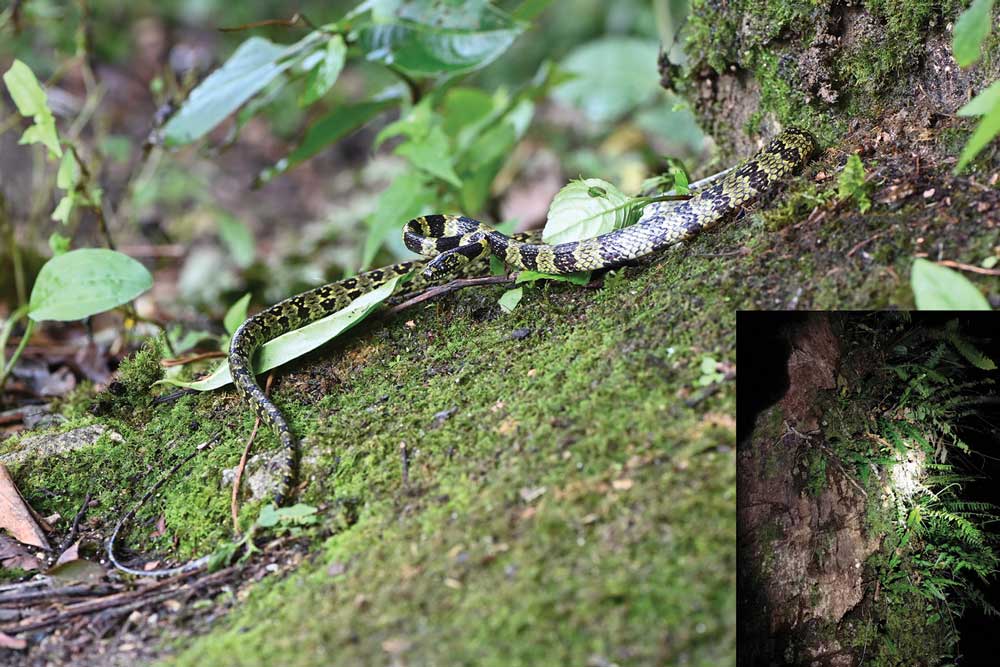The non-venomous snake is of the family Colubridae and was first named Ophites gammiei based on a single specimen collected in India.
Researchers in China have rediscovered the Gammie’s wolf snake (Lycodon gammiei), also know as the Sikkim false wolf snake, in southeastern Xizang, China. The non-venomous snake is of the family Colubridae and was first named Ophites gammiei based on a single specimen collected in India. That snake, which was described in 1878 ws reclassified into the genus Lycodon and/or Dinodon, the researchers wrote in their paper, “Rediscovery of Lycodon gammiei (Blanford, 1878) (Serpentes, Colubridae) in Xizang, China, with comments on its systematic position.” The paper was published in the journal ZooKeys on May 7, 2024. The Gammie’s wolf snake is considered a rare species in that it hasn’t been seen in decades. It is listed as Near Threatened by the IUCN.
“In 2023, we collected a living specimen of L. gammiei in Medog County, southeastern Xizang, China, the researchers wrote in their paper. “The rediscovery of this species in Xizang not only extends this species’ geographic distribution but also allows the exploration of its systematic position through molecular data.”
The Gammie’s wolf snake was originally thought to be endemic to India, but its range has been extended eastward to China with the latest findings by researchers Fu Shu, Bing Lyu, Keji Guo, Tong Zhang, Xiaoqi Mi, Li Li, Yayong Wu, and Peng Guo.
Two-Headed Wolf Snake Caught On Video, Released Back Into Forest
New Snake Species Named The Subhendu Wolf Snake Discovered in India
Lycodon gammiei has a snout to vent length of 698 mm and a tail length of 223 mm. It is black in coloration with yellow spots and larger yellow spots on the posterior part of the head. Its body is a pattern of black and yellow bands with some of the black bands with yellow spots within.
About Wolf Snakes
Wolf snakes are of the genus Lycodon and are colubrids. There are currently 64 recognized species of wolf snake. The Indian wolf snake is sometimes mistaken for the common krait (Bungarus caeruleus), which is one of the big four snakes that inflict the most snakebites in India and Bangladesh.



